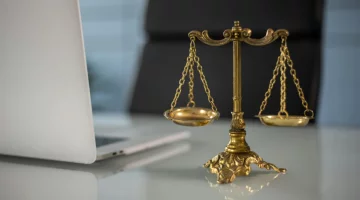Filing Claims for Accidents Involving Stairs or Escalators
South Carolina, with its picturesque coastal towns and vibrant cities, is a state that sees millions of visitors and residents navigating its many public and private spaces. From historic downtown areas to modern shopping centers, the state offers a wealth of places to explore, but it also presents risks, particularly when it comes to accidents involving stairs and escalators. These seemingly everyday fixtures can, unfortunately, be the site of dangerous mishaps, leading to serious injuries that disrupt people's lives. In such situations, knowing how to file a personal injury claim is crucial for securing the compensation needed to recover physically, emotionally, and financially.
In South Carolina, property owners are responsible for maintaining safe environments, which includes ensuring that stairs and escalators are properly functioning and free from hazards. When these areas are neglected or poorly maintained, it can lead to accidents that leave victims with significant injuries. If you or a loved one has been hurt in such an incident, it's important to gather evidence, seek medical attention, and consult with a personal injury lawyer. Reputed law firms like The Thumbs Up Guys can guide you through the process, offering expert legal support to ensure your rights are protected and you receive the compensation you deserve.
Understanding Liability
Determining liability is a critical step in pursuing a claim. Property owners have a duty to maintain safe premises. If negligence results in injury, they might bear responsibility. For example, unmarked hazards or faulty equipment could serve as grounds for liability. Thoroughly documenting the scene aids in establishing fault, as pictures or videos can provide essential evidence.
Gathering Proof
Evidence is crucial for supporting arguments and making a case stronger. Collecting information right after an incident occurs to back it up is crucial, including witness statements, footage from surveillance cameras, and medical records, all of which are key pieces of evidence. The documentation needs to accurately describe the conditions of stairs or escalators, pointing out any faults or dangers. This kind of information not only backs up the claim made by the person but also provides a precise portrayal of what happened.
Medical Record-Keeping
Not seeking medical assistance after an accident is one of the most common mistakes made in personal injury cases. Even slight injuries should be checked to rule out any hidden problems beneath the surface of your health condition. Maintaining proper records is essential for demonstrating the severity of injuries sustained during the incident. Detailed documentation from healthcare professionals is crucial in connecting the injuries directly to the event itself. Established links between the accident and resulting injuries play a vital role in ensuring an optimal outcome when seeking compensation for the damages incurred.
Legal Advice
Seeking advice from a legal advisor offers guidance and orientation in legal matters. Legal professionals assist individuals in navigating procedures and upholding laws. They evaluate the feasibility of a case and provide various perspectives on the potential results. By leveraging their knowledge and skills, people can maneuver through complexities with ease, increasing the chances of obtaining just compensation.
Submitting the Insurance Claim
Processing a claim entails taking various steps. Initially, the individual making the claim needs to promptly inform the party at fault in line with legal obligations, which usually tends to be the property owner or management. Following that is the collection and submission of documents backing up the claim, such as evidence materials like medical reports and any conversations linked to the event. It is vital to file within the specified timeline, as neglecting this could lead to losing eligibility for compensation.
Resolution of Differences
After submitting a claim comes the negotiation stage, where both parties strive to find common ground and settle the matter without legal battles dragging on indefinitely. Negotiations necessitate an argument backed by evidence and expert viewpoints to make a case for the claimant and secure a fair resolution. Involving a legal counsel can also aid in presenting a case that leads to a reasonable offer for the claimant. Resolving disputes outside of court can further bring forth advantages by saving time and cutting down expenses linked with protracted court trials.
Opportunities for Remuneration
Compensation is designed to address losses, like medical costs and lost income, as well as emotional distress, for the individuals affected by injuries or accidents. The awarded sum is influenced by various factors, such as the extent of harm suffered and how it has affected the person’s life. In situations where extreme negligence can be shown to exist, damages may be sought. Having adequate knowledge about the various forms of compensation can assist those making claims in forming practical anticipations.
Appealing Denied Claims
Having a claim rejected can feel discouraging, but it’s important to remember that it's not the outcome you have to accept irrevocably. Filing an appeal offers an opportunity to make your case heard again. By examining the grounds for the denial and supplementing them with evidence, you can bolster your appeal. Seeking guidance is crucial during this stage, as experts are well-versed in navigating through the complexities of rejections and can construct compelling arguments to support your case.
In Summary
Accidents on stairs or escalators can lead to severe consequences for the individuals involved in them. This is why it's important to know how the claims process works so that people can get the compensation they deserve when such incidents occur. Those injured must gather evidence promptly and seek help while also getting advice from professionals to navigate the complicated process smoothly.
More to Read:
Previous Posts:



